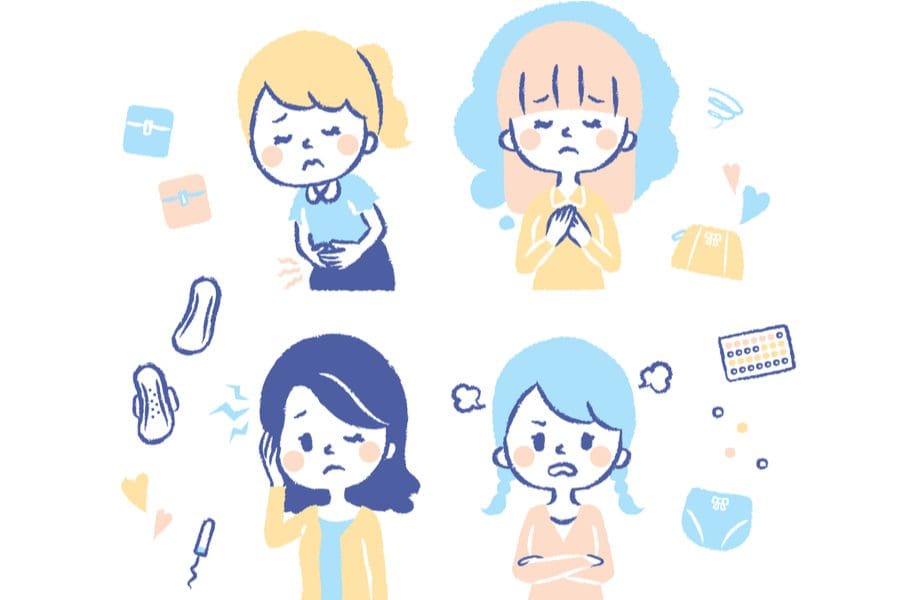Every woman understands how it feels to go through PMS (premenstrual syndrome). On top of everything else women deal with on the daily, we also have to prepare ourselves for emotional and physical discomfort for a few days even before getting our periods. Every experience is different, but there are some women who experience symptoms so severe it can be debilitating mentally, emotionally, and physically. It can be so extreme to the point where it affects your daily life, work, relationships, friendships, ability to get up in the morning…and so much more.
What is PMDD?
PMDD is short for Premenstrual Dysphoric Disorder, and it is a very severe form of PMS. Even though both cause hormonal discomforts, PMDD takes all those symptoms to the next level. It can cause high levels of depression and mood changes that can interfere and negatively affect your daily life. Like PMS, PMDD occurs before your period but unlike PMS it begins about 10 days before your period.
Emotional Side Effects of PMDD:
- Sadness and a feeling of hopelessness
- Debilitating Anxiety
- Lost interest in activities you love
- Drastic mood swings
- Increased irritability and anger
- Strained Relationships
Physical Side Effects of PMDD:
- Bloating
- Increased Appetite and Cravings
- Headaches
- Fatigue
- Poor Sleep
- Swelling
How can you treat PMDD?
Birth Control
Taking birth control can help manage the hormonal and emotional symptoms of PMDD in some women. Remember to always consult your doctor about which type would work best for you!
Nutritional Supplements
Nutritional supplements are a great way to get vitamins and nutritional goodness into our bodies that we may be lacking. There are supplements that you can incorporate in your daily life that can help alleviate symptoms of PMDD like calcium, magnesium, B6, and other natural supplements.
Changes in diet & lifestyle
Some changes that can help with the symptoms of PMDD are lowering or cutting out your intake of caffeine, sugars, and alcohol. It is also helpful to make sure you are eating small frequent meals throughout the day. It is always better to eat a high protein and high fiber diet! Regular exercise and a balanced diet can make a big difference.
Antidepressants
Studies have shown that antidepressants can help immensely with balancing your emotions prior to your menstrual cycle. Some mental health professionals believe that those suffering from PMDD can take antidepressants only during the days following up to your cycle to help manage your emotional state. Others believe that the best way to combat PMDD is to pair antidepressants with birth control. Always consult your doctor about what would work best for your situation.
Therapy
Therapy can help greatly with the emotional stressors that come with PMDD. Working with a licensed therapist, psychologist, or psychiatrist can help you come up with a plan to best manage your emotions and the negative effects that come along with PMDD.
If you feel like you may be suffering from PMDD, you are not alone. There are so many women who experience PMDD without really being aware of it. It is important to be open with your doctor or mental health professionals so that you can find the best treatment path for your body and mind.






